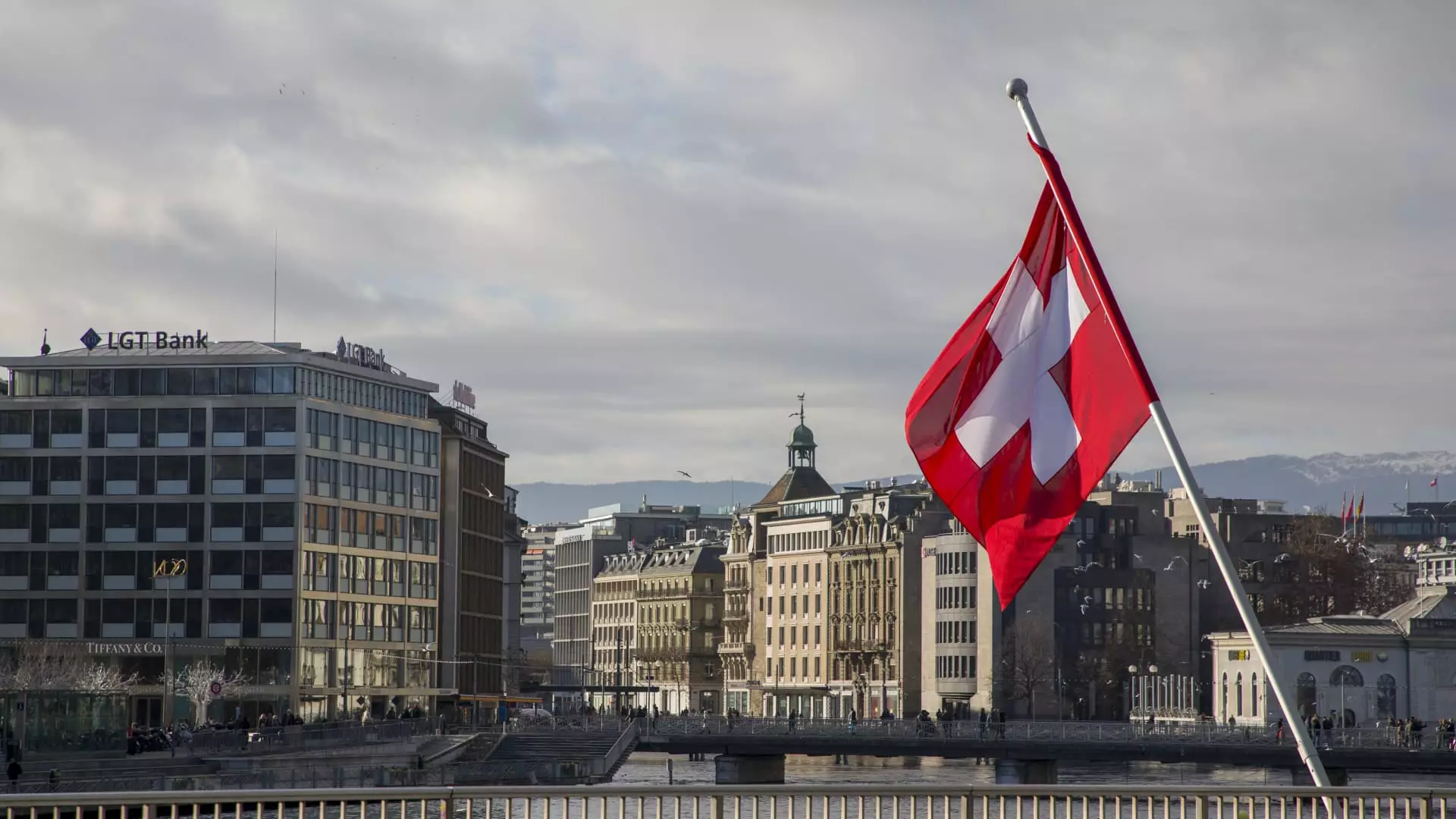Amid soaring national debt and increasingly contentious political environments, a retreat of affluent Americans to Swiss banks signals more than just fiscally prudent behavior; it’s an indictment of a larger societal malaise. The increasing trend of wealthy investors seeking sanctuary abroad reflects a profound disconnection with the American financial landscape. For many, opening a Swiss bank account is not merely an investment strategy; it symbolizes a strategic withdrawal from a system they perceive as increasingly unreliable and unstable.
Swiss financial institutions have reported an undeniable spike in the number of accounts opened by Americans. This isn’t just a fleeting trend but a significant wave influenced by socio-political events—first under the Obama administration, then triggered by the COVID-19 pandemic, and now exacerbated by protectionist tariff policies. What these instances illustrate is a growing urgency among high-net-worth individuals to insulate their assets—a desire rooted in a fear that their government, along with its economic mechanisms, cannot sustain their fortunes.
Political Uncertainty Fuels Financial Decisions
The motivations behind this phenomenon extend well beyond mere financial acumen. Many affluent Americans cite a decline in the rule of law under previous administrations as a primary concern. The emotional and psychological impact of political discord resonates deeply within the affluent class; there’s a palpable fear that the stability enjoyed for decades is disintegrating. As some business leaders and investors lament the erosion of trust, their solution has been to navigate towards the stringent regulation and neutrality of Swiss banking. These institutions offer an alternative—one that provides a reliable legal framework and an extensive history of protecting private wealth.
Moreover, the allure of gold has compelled many wealthy individuals to shift their assets into physical commodities stored securely in Switzerland. In an era characterized by uncertainty, there’s a growing belief that tangible assets might serve as a hedge against the unpredictability of market fluctuations. Gold isn’t just an investment; for many, it represents a sense of security and permanence amid the shifting sands of political turmoil.
A Plan B: Minority Investors Seeking New Frontiers
Additionally, the trend of acquiring residency or second citizenships in Europe has burgeoned among those who seek alternatives to the perceived volatility of American life. The concept of a “Plan B” is becoming a central theme for affluent Americans. This is not merely about preventing financial loss; it’s about reclaiming control over their destinies amidst growing perceptions of unpredictability. When a select few can write their own rules—choosing where to bank or reside—one has to question the implications for social equity and what it means for the average American.
Opening a Swiss bank account may seem like a straightforward endeavor, yet it embodies a complex relationship with U.S. regulatory frameworks. As banks wrestle with stringent U.S. disclosure laws while trying to satisfy their affluent clientele, the dichotomy of being both American and global presents a conundrum of identity. The implicit message here is clear: prosperity and security may no longer be found solely within the borders of the United States.
The withdrawal of wealthy Americans from their own financial ecosystem is a wake-up call. It urges us to reconsider not just our economic policies but our societal structures and values. The trend of de-Americanization in investment portfolios is as much a reflection of disenchantment with governance as it is with financial prudence.

Leave a Reply